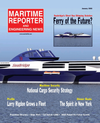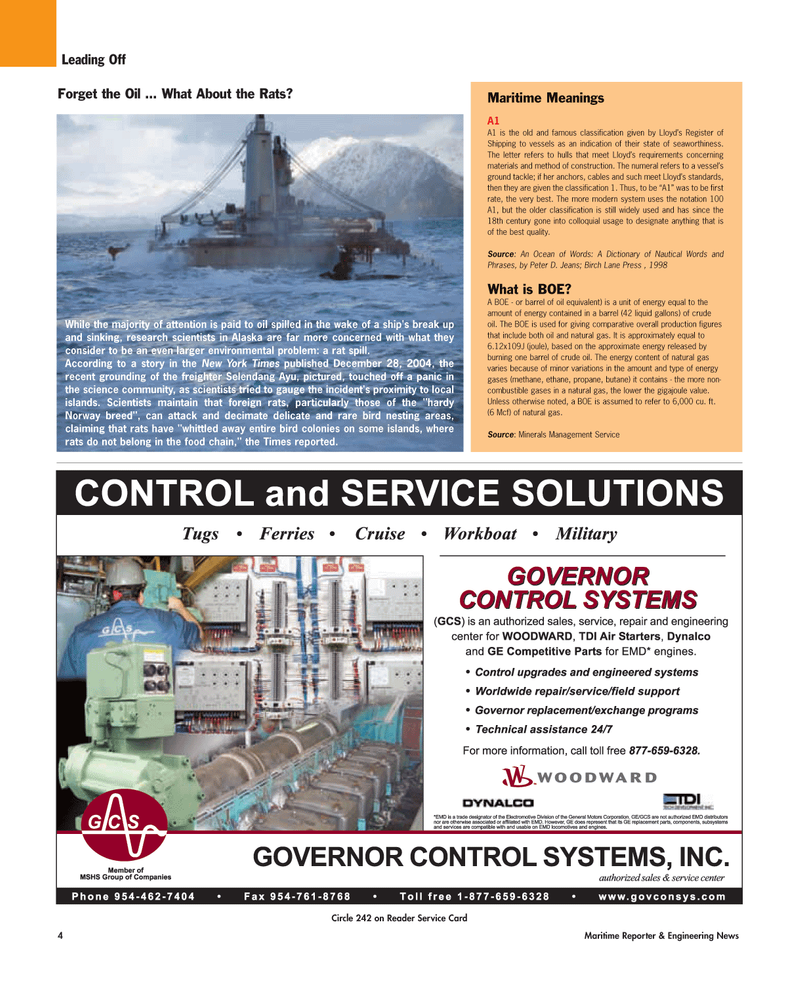
Page 4: of Maritime Reporter Magazine (January 2, 2005)
Read this page in Pdf, Flash or Html5 edition of January 2, 2005 Maritime Reporter Magazine
Leading Off 4 Maritime Reporter & Engineering News
Maritime Meanings
A1
A1 is the old and famous classification given by Lloyd’s Register of
Shipping to vessels as an indication of their state of seaworthiness.
The letter refers to hulls that meet Lloyd’s requirements concerning materials and method of construction. The numeral refers to a vessel’s ground tackle; if her anchors, cables and such meet Lloyd’s standards, then they are given the classification 1. Thus, to be “A1” was to be first rate, the very best. The more modern system uses the notation 100
A1, but the older classification is still widely used and has since the 18th century gone into colloquial usage to designate anything that is of the best quality.
Source: An Ocean of Words: A Dictionary of Nautical Words and
Phrases, by Peter D. Jeans; Birch Lane Press , 1998
What is BOE?
A BOE - or barrel of oil equivalent) is a unit of energy equal to the amount of energy contained in a barrel (42 liquid gallons) of crude oil. The BOE is used for giving comparative overall production figures that include both oil and natural gas. It is approximately equal to 6.12x109J (joule), based on the approximate energy released by burning one barrel of crude oil. The energy content of natural gas varies because of minor variations in the amount and type of energy gases (methane, ethane, propane, butane) it contains - the more non- combustible gases in a natural gas, the lower the gigajoule value.
Unless otherwise noted, a BOE is assumed to refer to 6,000 cu. ft. (6 Mcf) of natural gas.
Source: Minerals Management Service
Circle 242 on Reader Service Card
Forget the Oil … What About the Rats?
While the majority of attention is paid to oil spilled in the wake of a ship's break up and sinking, research scientists in Alaska are far more concerned with what they consider to be an even larger environmental problem: a rat spill.
According to a story in the New York Times published December 28, 2004, the recent grounding of the freighter Selendang Ayu, pictured, touched off a panic in the science community, as scientists tried to gauge the incident's proximity to local islands. Scientists maintain that foreign rats, particularly those of the "hardy
Norway breed", can attack and decimate delicate and rare bird nesting areas, claiming that rats have "whittled away entire bird colonies on some islands, where rats do not belong in the food chain," the Times reported.
MR JANUARY 2005 #1 (1-8).qxd 1/5/2005 2:35 PM Page 6

 3
3

 5
5
